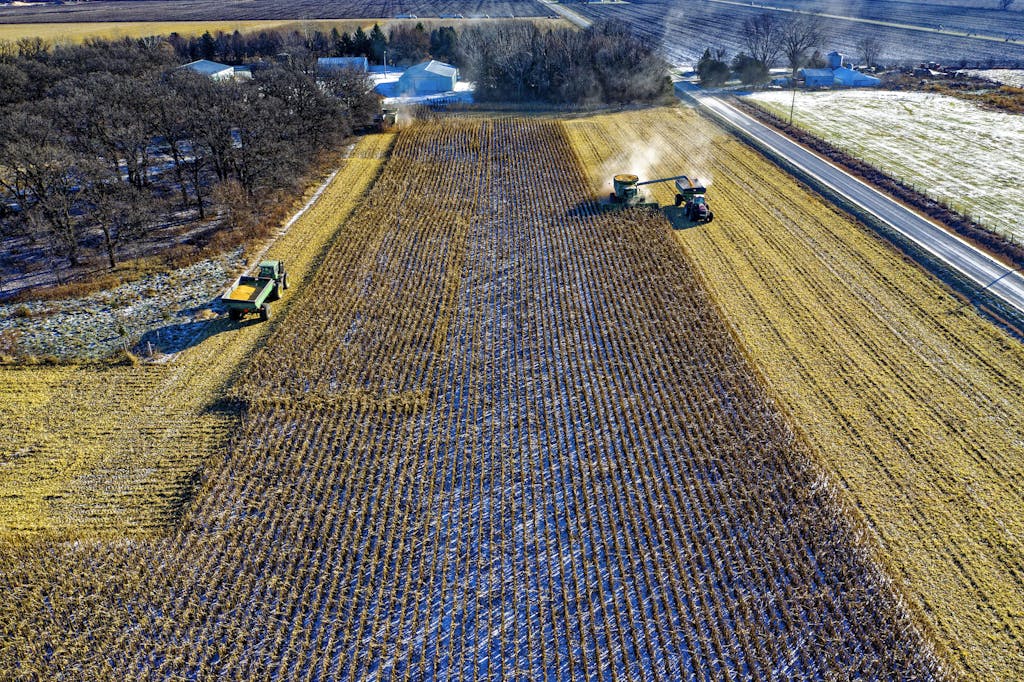This year has demonstrated in stark terms both our deep vulnerabilities and our interconnectedness, and that includes the perverse impact of climate change on those among us without adequate access to nutritious food.
As a result of COVID-19, we find ourselves dealing with not only the immediate threats to human life but also a chain reaction of shocks that have spread across the globe, including rising levels of food insecurity — a trend that will be exacerbated by the growing impacts of climate change.
“Next year’s UN Food Systems Summit is therefore timely and absolutely vital,” Elizabeth Cousens, CEO and President of the UN Foundation, said at a Sept. 14 event co-hosted by the UN Foundation, the UN World Food Programme, Ethiopia, and the UK.

The virtual discussion, “Building Climate-Positive and Resilient Global Food Systems,” which brought together several key leaders working at the vanguard of climate change and agriculture, explored opportunities to ensure that food systems resilience is put at the heart of the global community’s efforts to “build back better.”
The recent Sustainable Development Goals (SDGs) report has clearly illustrated that while there has been some advancement, progress has stalled, and in some cases reversed, in vital areas like hunger and inequality — even as the impacts of climate change continue to grow and make it more difficult to get back on track. The deployment at scale of innovative sustainable, nature-positive solutions will be critical to close these gaps.
Famine has become a new and present global risk. More than a quarter of the world’s population was food insecure in 2018, and new estimates suggest that the share is likely to double due to the impact of the health crisis, a sobering reality as we seek to fulfill the SDGs over the next 10 years.
Dramatic shifts in our climate are only making matters worse. Even with the slowdown in economic activities tied to decisions by governments around the world to limit the spread of COVID-19, greenhouse gas levels are at a record high and this year is set to be the hottest or second hottest on record.
That’s why the Food Systems Summit, to be convened next year by the UN Secretary-General, will be essential to engage governments as well as all stakeholders involved in the world’s food system, from producers to consumers and rural farmers to distributors. “It will give us a rare opportunity to drive new political attention to these critical intersectional issues. And more importantly, to mobilize new action that can put our food systems on the more sustainable and resilient course on which all of us depend,” Cousens said.
It is an opportunity we cannot miss, especially as governments and institutions plan their recoveries from COVID-19. It will be critical to make investments that support a greener, fairer, and more resilient future because we already know that food systems are unable to deliver for the most vulnerable when they’re facing such tremendous shocks.
“My fear is that we don’t really understand how severe a problem we are facing here,” Martin Frick, Deputy to the Special Envoy for the UN Food Systems, warned at the event.

And while the World Food Programme has invested in early warning systems and weather-based insurance schemes to help governments and partners better predict hazards and take action to minimize climate threats, it is not enough in the face of growing climate risks.
“We really need concerted global and local action to address food insecurity in the short term and eradicate hunger in the longer term, and this can’t be achieved without sustainable and resilient food systems,” said Valerie Guarnieri, Assistant Executive Director of the World Food Programme.
Indeed, urgent action is needed at every level. On a local scale, governments must prioritize knowledge sharing, protect the most vulnerable, and provide training on climate-resilient practices, said Hellen Onyango, a leading cereal grain aggregator in Western Kenya.
Khalid Bomba, CEO of the Ethiopian Agricultural Transformation Agency, underscored the need to strengthen partnerships and invest in data and information systems at the national level.
The international community must also do more to deliver on the Paris Agreement and protect food systems together. At COP 26 next year, countries will have the opportunity to set higher climate goals — and resilience will have to be at the core of this effort, said Nick Bridge, the UK’s Special Representative for Climate Change.
To eradicate the threats posed by climate change, we will have to focus on five key areas: ensuring access to safe and nutritious food, shifting to sustainable consumption, nature-positive production, supporting rural livelihoods, and building resilience.
We will need to reimagine the world’s agricultural system as nature-positive, a system that is not only sustainable but that also can also heal and undo the damage of the previous decades.
“That is possible,” said Mr. Frick, “but it’s only possible if we change the paradigm of the whole system,” from soil erosion to carbon sequestration to finance. “Because in the end, it’s all interconnected and it should all be understood as one coordinated effort.”




 View All Blog Posts
View All Blog Posts


